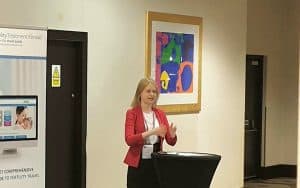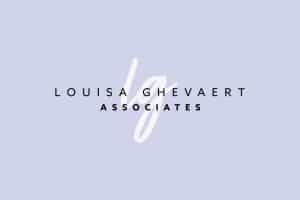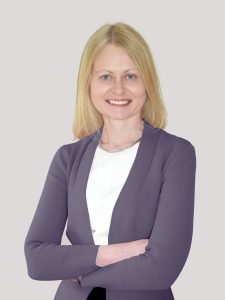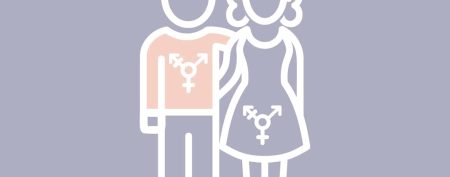12 August 2025
The recent case of Re CA and Ors (Children of Unregulated Sperm Donor) [2025] EWFC 130 brings into focus the threats posed by unregulated sperm donation, specifically at the hand of serial sperm donor known as ‘Joe Donor’. In this case, Mr Justice Poole determines whether ‘Joe Donor’ – officially named Robert Albon – has any rights to a Declaration of Parentage, a Parental Responsibility Order and a Child Arrangements Order for two of the possible 180 children he has fathered. The case also brings to light the vulnerabilities of the two children’s mothers and raises concerns about exploitation and abuse that can accompany informal sperm donation, and what this means for the best interests of the children involved.
Background
An understanding of the personal history and background to this case helps explain how two highly vulnerable women (MA and MB), who desperately wanted more children, unwittingly became entangled with serial sperm donor Mr Albon and embroiled in complex legal proceedings.
Mr Albon
Mr Albon was aged 54 at the time of these legal proceedings. He began working as an unregulated sperm donor in 2013 in the US, whilst living with his wife and two children. In 2017, Mr Albon then left his family by spontaneously flying to Argentina without warning or farewell to his wife or their children.
He continued donating his sperm in Argentina where he lived for three years and worked as a translator, as well as in other areas of South America, and then the US, Australia and parts of Africa. He divorced his wife in 2019, following repossession of the family home; an order for alimony in favour of his ex-wife remains in force. A mother from the US also pursued him for child maintenance, which remains in force and a warrant was issued for his arrest for breach of that order. As a result, he owes tens of thousands of dollars in alimony and child maintenance payments. He then arrived in the UK in September 2020 with the intention of going to Germany and the Netherlands to continue his sperm donation activity, but remained in the UK due to Covid-19 restrictions. He subsequently applied for permanent leave to remain in the UK following the expiration of his tourist visa.
Whilst living in the UK, he is known to have been involved with a significant number of women who sought donor sperm, with repeated police involvement. His Honour Judge Jonathan Furness KC took the unusual step on public interest grounds to name Mr Albon within previous private children law proceedings in the Family Court in Cardiff; described by the vulnerable women involved as a “horror story” to warn women about his continuing sperm donor activities and the risks of unregulated sperm donation. To find out more about the legal judgment In the Matter of D [2023] EWFC 333 click here in which HHJ Furness KC found that Mr Albon:
“…is a man who seeks to control, women and children appear to be almost a commodity to him as he sets about increasing the number of his children around the globe”.
Mr Albon sought to appeal HHJ Furness KC’s legal ruling raising 47 grounds of appeal. Lord Justice Peter Jackson refused permission on all grounds on 30 January 2024. Mr Albon then tried seemingly unsuccessfully to apply to the European Court of Human Rights.
Mr Albon advertises as a sperm donor under the name Joe Donor on Facebook and Instagram. He regards himself as performing a job which benefits women and helps them have children. He tests for HIV once a year but not for sexually transmitted infections (STI’s) nor has he undergone screening for genetic conditions. Additionally, serious questions about his motivations and the safety of women and children continue to arise given the nature and scale of his prolific sperm donation activity, having allegedly fathered 180 children over the last twelve years.
Mother Known as MA
The case reports that MA, the mother of child CA, lives in the northeast of England. During her childhood, she experienced domestic abuse and neglect from her parents, as well as being exposed to their drug use. After then being placed with her half-sister’s paternal family, she was sexually abused by a babysitter.
As a teenager, MA contacted her birth parents and moved back in with her mother. However, the sexual abuse continued at the hand of her maternal grandfather. Her mother failed to intervene, which led to them having no contact for several years.
MA also had a history of involvement with mental health services. From 2019/2020 she was reported as having auditory and visual hallucinations and took several overdoses of prescription medication and was prescribed ongoing medication for anxiety, depression and panic attacks.
Prior to conceiving CA, MA had a son, known as CZ. His father was reported to be serving a prison term as a known sex offender, and CZ originally presented with developmental delays.
It is also relevant that MA’s IQ was reported to be within the 4th percentile at 74. The case reports that she was within the borderline range for verbal comprehension, working memory and processing speed. As a result, she was (and remains) vulnerable to exploitation and abuse; a relevant factor when considering her difficult relationship with Mr Albon.
Mother Known as MB
MB, the mother of child CB, similarly struggled with absent parenting within her childhood – she stated within the legal proceedings that she felt her mother was very distant. Additionally, from the age of 16, she entered into a long relationship with a man 20 years older than her, who is father to 4 of her children.
Like MA, her IQ was reported to be in the low end of the scale at 84. Professionals, such as clinical psychologist Dr Helen Young who carried out several assessments throughout this case, found that she could become easily distressed due to relational trauma growing up and a loss of important caregiving figures. MA was also reported to have several markers for Asperger’s Syndrome that relate to her attachment difficulties.
MA was reported to have a total of 7 children prior to conceiving CB, to several different fathers. None of these children remained in her care, likely due to her low IQ and because of her suspected Asperger’s Syndrome.
Mr Albon’s relationship with MB
Mr Albon’s first contact with MB was through Facebook in December 2020. She began by asking him to be a sperm donor and asked whether he was close to her location (the northeast of England). Following this, Mr Albon travelled around 250 miles to see her.
Their sperm donation arrangement proceeded by way of natural conception (sex), rather than through artificial insemination. This began on 29 December 2020, and continued for months afterwards, until August 2021 when MB fell pregnant with CB.
At the time of her contact with Mr Albon, MB had two of her children, CX and CY, living with her. From October 2021 until February 2022, Mr Albon lived with MB and her two children, until he was arrested by police after they were called following MB’s demands for him to leave.
On 24 March 2022, MB asked Mr Albon to attend the birth of CB, which he did in May 2022. He was named on CB’s birth certificate as her father, and so gained parental responsibility for her. After she was born, Mr Albon did not live with MB, but he would help with some childcare including picking up her children from nursery and attending some celebrations like birthdays.
Later, concerns arose that MB was struggling to care for her children and was becoming isolated. In February 2023, child CX was admitted to hospital with constipation and vomiting, and later that year MB withdrew him from nursery and no longer engaged with health visitors. Shortly afterwards, on 27 February 2024 CX was admitted to hospital with seizures and low blood glucose, and was described by a doctor as being in “starvation mode”.
In March 2024, as a result of these circumstances, interim care orders were made for both CX and CB by Durham County Council, and the question of Mr Albon’s role in CB’s life arose. He opposed the placement order for CB and wished instead for her to be placed in his care, or to have post adoption contact with CB if this was not accepted.
Mr Albon’s relationship with MA
MA first made contact with Mr Albon on 14 February 2022 on Facebook. She asked him whether he lived locally, and then said that she wanted to conceive around 2 months later. She also agreed that Mr Albon would donate through sexual intercourse.
In June 2022, CA was conceived through natural conception. In March 2023, MA contacted Mr Albon to confirm CA’s birth, which he did not attend. He was not subsequently registered as father on CA’s birth certificate, and so he did not acquire parental responsibility for her. After this time, MA and Mr Albon began having more contact.
In September 2023 MA expressed her agreement to Mr Albon being involved in her daughter’s life, and in the same month he visited her. He visited a total of 10 times that year, and on each visit he and MA had sexual intercourse with the intention of MA getting pregnant again, although these conception attempts were unsuccessful.
In November 2023, child CZ presented at hospital with a bruised ear (there was no suggestion that Mr Albon caused the injury). Child services had already been aware of CZ after MA allowed his father to have contact with him, but after this injury, social services became officially involved.
On 11 December 2023, Redcar and Cleveland Borough Council issued public law proceedings in relation to CA and CZ due to indications that MA was struggling to manage her childcare responsibilities. Within these proceedings, Mr Albon applied for a Declaration of Parentage to have CA’s birth certificate re-registered with him recorded as her father. He also applied for parental responsibility and contact with CA.
However, by the final hearing, MA no longer wanted any connection with Mr Albon having learned more about him through the legal proceedings. She became hostile to the idea of him being involved in CA’s life. Mr Justice Poole went on to find that at the time of his donation and visits, MA ‘was isolated and welcomed the fact that he would interact with her children. It is only in hindsight… that she now characterises his visits as being solely for the purpose of having sex… to conceive another baby’.



Legal Framework
The court’s paramount consideration under the Children Act 1989 was the children’s welfare. This was especially relevant in this case as the court was required to navigate complex and intertwined adult relationships involving two vulnerable mothers and determine the most appropriate solutions for the care and upbringing of both CA and CB.
Declaration of Parentage
Mr Albon applied for a Declaration of Parentage for CA and asserted that he met the legal criteria since he was her biological father. However, MA argued that it was not in CA’s best interests for the court to grant a Declaration of Parentage given the complexity of Mr Albon’s history and relationship with her.
The provisions for a Declaration of Parentage are found under the Family Law Act 1986, section 55A. The only relevant exception that could be raised in relation to this case was section 55A(5) which says that a declaration should not be made if it is not in the child’s best interests.
If a Declaration of Parentage was granted in Mr Albon’s favour, CA’s birth would be re-registered under the Births and Deaths Registration Act 1953, section 14A. However, it would not automatically confer parental responsibility upon him.
Parental Responsibility
Mr Albon therefore applied for parental responsibility for CA under the Children Act 1989, since the re-registration of CA’s birth pursuant to a Declaration of Parentage would not enable him to acquire and exercise parental responsibility for her. Section 4 of the Children Act 1989 enables acquisition of parental responsibility by a father, which would confer upon him ‘all rights, duties, powers, responsibility and authority by which law a parent has in relation to the child’.
Legal Status of a Sperm Donor
Legal compliance with relevant legal provisions in the Human Fertilisation and Embryology Act 2008 (HFEA 2008) enable a biological father, who has donated sperm for assisted conception, to be excluded from having any legal rights or obligations for a child that is conceived through artificial insemination. The purpose of these provisions is (1) to allow the non-biological parent (typically the partner or spouse of the person who is undergoing artificial insemination with donor sperm) to acquire legal parenthood in their place or (2) for a single mother to conceive and become the sole legal parent for their child in a UK licensed fertility clinic setting.
In this case, however, Mr Albon did not fall under the relevant sperm donor provisions of the HFEA 2008. This was because there was no dispute over the fact that both little girls were conceived through natural conception and not through assisted conception. This meant that Mr Albon was the biological and legal father of both children.
Analysis
Mr Albon and his Role in the Children’s Lives
In determining Mr Albon’s legal applications, the court had to analyse the complexity of his history and relationships with both MA and MB and decide whether it was in the best interests for the children for him to be involved in their lives.
It was found that a large proportion of the women Mr Albon had dealt with were considered vulnerable. Both MA and MB had difficult upbringings and had low IQ’s. Additionally, five out of the six women in the UK who have been involved in legal proceedings following their use of his donated sperm had struggled with mental health issues, including MA and MB.
This demonstrated a pattern in the types of women who had used Mr Albon’s services and acted as a warning of the threats that can be posed by informal sperm donation involving vulnerable people. It also reflected badly on his trustworthiness if he were to care for CB or have parental responsibility for CA.
Mr Justice Poole also noted that since Mr Albon had debts and awaited arrest in the US, it was likely that his motivation for influence over the care of CA and CB was to seek secure immigration status in the UK. This showed that his relationships with his children would remain superficial, and so it would not be in their best interests to allow close contact with him.
Declaration of Parentage for CA
Within the legal proceedings, however, Mr Justice Poole found that there were strong factors in Mr Albon’s favour for his application for a Declaration of Parentage ruling that he was CA’s legal father. This was because he was CA’s biological father and legal father under common law and it was important for her to know her heritage. This was considered to outweigh the complexities of Mr Albon’s history. Thus, MA’s concern that it would not be in her daughter’s best interests (under section 55A(5)) of the Family Law Act 1986 was not made out.
It was also not found that Mr Albon’s application was manifestly contrary to public policy (under section 58(1)of the Family Law Act 1986) since CA’s conception took place through natural conception.
Consequently, Mr Albon’s application for a Declaration of Parentage was granted and CA’s birth certificate was re-registered, recording him as her father.
Parental Responsibility for CA
Although the importance for CA to know her biological heritage outweighed the concerns with Mr Albon’s background, this was not the case in respect of his application for parental responsibility for her under the Children Act 1989, section 4(1)(c).
Up to the time of the hearing, Mr Albon had very limited contact with CA, only seeing her during the few visits he made to MA for conception purposes. As such, he had no deep emotional connection with her, and so having parental responsibility would not reflect their relationship. He was also not considered to be trustworthy due to his lack of empathy as a serial sperm donor.
Mr Justice Poole found that he was not seeking parental responsibility for an active role CA’s upbringing, but rather for his own ends to support his immigration status. As a result, it was not seen in CA’s best interests for Mr Albon to have parental responsibility, and so his application was denied.
Child Arrangements Order for CA
Mr Justice Poole also determined that it was not in the best interests of CA to have close contact and spend time with Mr Albon. This was because it would likely aggravate rather than mitigate the difficulties of her origins and identity as Mr Albon was such a prolific sperm donor and in the public eye.
It was further found that the only contact Mr Albon should have with her was a one-way, annual communication by letter or card to MA, that she could give to CA when she felt it was appropriate.
Adoption Orders for CB and CX
It was accepted that MB was not able to care for CB and CX effectively, and since no family members were able to care for her children, adoption orders were granted.
Regarding Mr Albon requesting to care for CB, instead of her going into foster care, Mr Justice Poole found significant disadvantages that mitigated against this. Namely, he and MB no longer had a relationship, which would make it distressing. Mr Albon also had a history of abandoning his children, as he did when he left for Argentina.
Mr Justice Poole also found it unlikely that Mr Albon would stop his unregulated sperm donor activities if CB was placed in his care, which did not inspire confidence that she would be safe or appropriately provided for.
As a result, it was not considered to be in her best interests for CB to be placed with Mr Albon, and so the local authority care plans were approved. Similarly to the child arrangements order for CA, Mr Albon was only permitted contact with CB via a letter once a year.
Lessons To Be Learned
This case palpably demonstrates the risks of undertaking unregulated sperm donation, outside of a licenced fertility clinic. These risks are highlighted by the Human Fertilisation and Embryology Authority (HFEA) warning on their website against the use of informal sperm donation:
‘If you undergo a private arrangement, you will not have the same safety and legal protections… there is… no limit on the number of families the donor can create… [and] there are also safety issues to think about. If you decide to meet a man who you do not know, you should be careful not to put yourself at risk.’
Mr Justice Poole also highlighted the risks of unregulated sperm donation saying:
“The women who use Mr Albon as a sperm donor mostly fall into two camps: women in a lesbian relationship and women who are not in any relationship. The risks they take in using a prolific, unregulated sperm donor who operates as Mr Albon does, are obvious. They do not know anything about the health of his sperm, his genes, his physical or mental health, or his history. Like MA, many will not even know his real name. There is no record of his other children, their mother, or where they live. There is nothing to prevent Mr Albon seeking declarations of parentage, parental responsibility or child arrangements orders in respect of the children he fathers”.
Specialist Fertility and Family Law
As such, this case serves as a warning, and an example, of how vulnerable women and families can be subject to serious repercussions at the hand of unregulated sperm donation. Furthermore, the complex legal issues and proceedings in this case highlight the importance of obtaining specialist fertility and family law advice prior to undergoing informal conception arrangements with a sperm donor. Specialist fertility and family law advice and representation identifies and safeguards against an inherent range of legal and practical risks to help maximise successful outcomes and navigate:
- Complex personal and family situations.
- Conception by private sperm donation.
- Regulated sperm donation at a licensed fertility clinic.
- Assisted conception with a known sperm donor, anonymous/identity-release donor or co-parent (e.g. legal parentage, parental rights, birth registration, financial responsibility, risks in practice and dispute mitigation etc).
- Donor conception issues/disputes (e.g. concerning formal DNA/paternity testing, direct-to-consumer genetic testing, fertility fraud, biological and legal parentage and birth certificates).
- Care and upbringing of children following a dispute with a donor, co-parent, an ex-partner or parent (e.g. contact, residence, financial arrangements, parental responsibility, specific issue or prohibited steps).
- Intra-family egg or sperm donation.
- Donor conception and issues arising from impaired fertility/infertility, cancer diagnosis/illness, unsuccessful conception attempts, gender transition, change in personal circumstances, age and later-life parenthood.
- Posthumous conception with the eggs, sperm and embryos of a deceased loved one in fertility treatment with donor conception/surrogacy (e.g. due to illness or accident).
- Legal and wider aspects of international surrogacy or a UK surrogacy arrangement and donor conception.
- Expert witness fertility, surrogacy and donor conception law services.
- Legally clarify and determine an individual’s biological parentage (e.g. seek a formal court order for DNA testing and a Declaration of Parentage).
- Legally determine and recognize an individual’s legal parenthood.
- Rectify an individual’s birth certificate (e.g. add or remove a parent’s name).
- Legally resolve a paternity dispute (i.e. following sperm donation, IVF mix-up, issues with natural conception).
- Legally resolve legal parenthood of a non-birth parent for their child following errors in completion of HFEA consent forms at UK fertility clinics.
- Resolve a dispute about paternity/legal parentage and financial provision for a child or individual.
Do you need a fertility or family lawyer? Do you need help with family building, donor conception, a paternity dispute, obtaining and exercising parental responsibility, bringing or defending a child arrangements order? Do you need expert assistance with an application for a Declaration of Parentage to confirm legal or biological parentage and resolve issues with birth registration? If you would like to discuss your situation or you would like specialist legal advice contact Louisa Ghevaert by email louisa@louisaghevaertassociates.co.uk or by telephone+44 (0)20 7965 8399.



Images: Louisa Ghevaert CEO & Founder Louisa Ghevaert Associates
For more information about Louisa Ghevaert click here.




